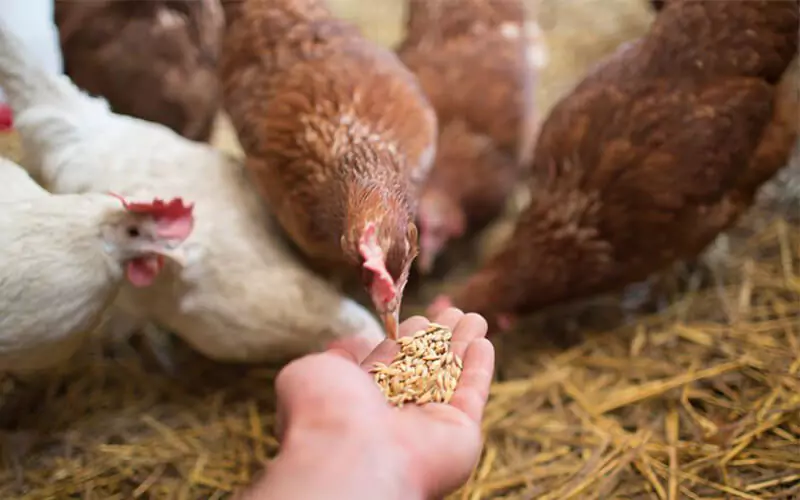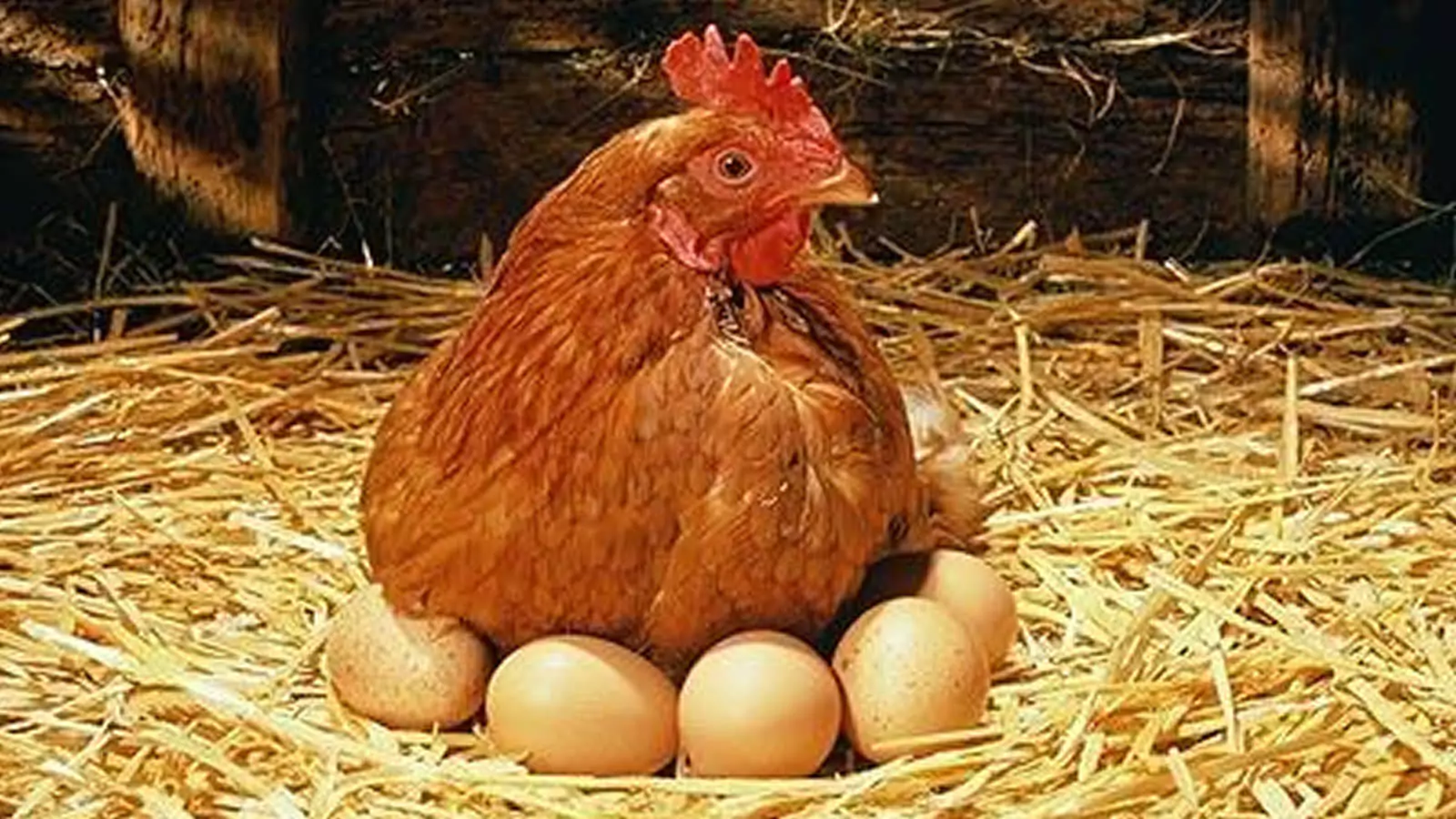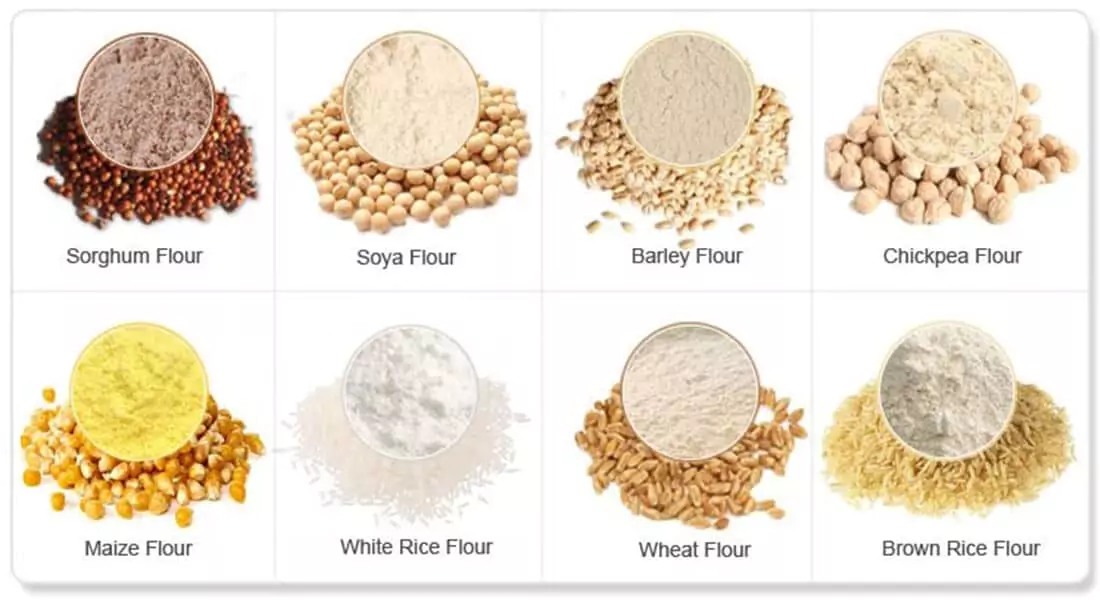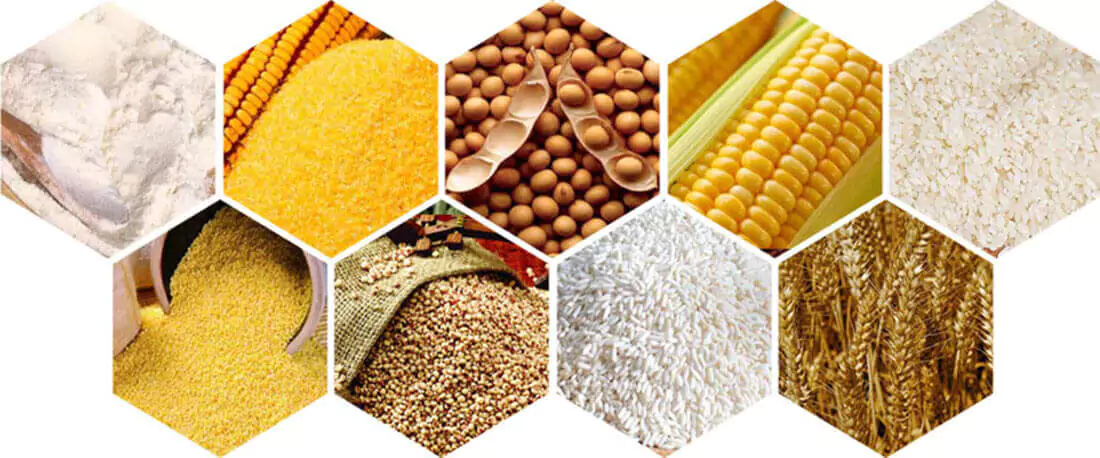A Farmer’s Guide to Poultry Feed Formulation: Better Feed, Healthier Birds
For any poultry farmer, from those with a small backyard flock to those with a larger operation, feed is the only biggest cost. It’s also the number one key to having healthy, productive birds. Making your own poultry feed offers powerful control over both of these important factors. It puts you in charge of your budget and your flock’s nutrition.
This guide is a practical walkthrough for farmers. It is not a complex scientific paper. We’ll cover the building blocks of good feed. We will also look at the key ingredients and how to create a simple, balanced recipe for your flock.


Why Proper Poultry Feed Formulation Matters More Than You Think
Creating a specific feed for your poultry is very important. It offers many benefits for your farm.
Maximizing Egg Production Numbers:
The right balance of protein, energy, and key nutrients in the feed directly helps your hens lay an optimal number of eggs. When hens get everything they need, they can reach their full laying potential.
Stronger Eggshells, Better Quality Eggs:
Strong eggshells are vital for farmers with laying hens. Calcium, phosphorus, and Vitamin D play a crucial role in forming these strong shells. A good layer feed provides these in the correct amounts. This reduces the number of cracked or broken eggs.
Healthier, Longer-Lived, More Productive Hens:
A balanced diet helps prevent common nutritional problems that can affect poultry. It supports a strong immune system. This helps birds resist diseases. Healthy birds live longer and stay productive for a longer time.
Controlling Feed Costs with Smart Choices:
Understanding poultry feed formulation allows you to make smart decisions about the ingredients you use. You can often use cost-effective local ingredients without giving up essential nutrition. This helps you manage your biggest farm expense.

Understanding the Key Nutritional Needs of Poultry
To make good feed, you first need to know what your birds need to be healthy and productive.
Protein (The Engine for Growth & Eggs):
Protein is essential. It helps build muscle in meat birds (broilers). For laying hens, a steady supply of protein is needed to form an egg nearly every day.
Energy (from Carbohydrates & Fats): The Fuel for Daily Life
Poultry need energy for all their daily activities. This includes walking around, staying warm, growing, and laying eggs. This energy primarily comes from the grains in their feed.
Calcium & Phosphorus (For Bones & Eggshells):
These minerals are crucial for strong bones. For laying hens, calcium is especially important. A large amount of calcium is needed to form a strong eggshell every day. Phosphorus works together with calcium for this process.
Essential Vitamins & Minerals (The “Extras” for Health):
Poultry need a wide range of vitamins and minerals. These help them stay healthy, fight off disease, and keep their bodies working correctly. The easiest and safest way to provide these is with a good quality “premix.”
Gathering Your Ingredients: The Poultry Feed Pantry
A good poultry feed is made from a careful mix of different types of ingredients.
Energy Sources (The Base of the Feed):
These ingredients make up the largest part of the feed. They provide energy. Common choices include: Corn (Maize), Wheat, Barley, and Sorghum.
Protein Sources (The Power Ingredients):
These provide the protein and essential amino acids for growth and eggs. Good options are: Soybean Meal (a very common and effective choice), Fish Meal (often used in starter feeds for its high-quality protein), Sunflower Meal, and Canola Meal.
Calcium Sources (Especially Important for Layers):
You need to add a good source of calcium for your laying hens. Common sources are Ground Limestone and Crushed Oyster Shell. Many farmers like crushed oyster shell because it provides a slower, more steady release of calcium into the hen’s system. This is helpful for shell formation overnight.
The “Must-Have” Additive: The Vitamin & Mineral Premix
This is a non-negotiable part of a complete feed. It ensures your birds get all the small but vital micronutrients they need to stay healthy. Be sure to choose a premix that is specifically made for either broilers or layers.
(Optional but Important) Grit & Oyster Shell for Layers
If your laying hens are not free-ranging where they can pick up small stones, they need access to insoluble grit. They use these small stones in their gizzard to help grind up their food. It is also a good idea to offer them extra crushed oyster shell in a separate dish. This allows them to take in more calcium when they feel they need it for making eggshells.

Formulating Your Feed: Broilers vs. Layers Have Different Needs
This is a critical point to understand. You cannot feed a broiler and a layer the same food and expect to get the best results from either.
For Broilers (Meat Birds): The Goal is Fast Muscle Growth
Starter Feed (approx. 0-3 weeks):
Broiler chicks need a feed with very high protein. This is often 22-24% protein. It supports their rapid muscle development when they are young.
Grower/Finisher Feed (approx. 3+ weeks):
As they get older, their need for protein decreases slightly. The energy content of the feed becomes more important for “finishing” them for market.
For Layers (Egg-Laying Hens): The Goal is Strong Eggs & Hen Health
Pullet/Grower Feed (approx. 0-18 weeks):
Young hens (called pullets) need a balanced feed with good protein. This helps them develop a strong body and frame before they start laying eggs.
Layer Feed (approx. 18+ weeks):
Once they start laying, their protein needs are more moderate (around 16-18%). However, their need for calcium becomes very high. The feed should have about 3.5% to 4.5% calcium to support daily eggshell formation.
Poultry Feed Formulation for Layers
| Ingredient | Starter Feed (%) | Grower Feed (%) | Layer Feed (%) |
|---|---|---|---|
| Corn | 55 | 60 | 55 |
| Soybean Meal | 20 | 17 | 16 |
| Wheat Bran | 10 | 8 | 12 |
| Fish Meal | 5 | 3 | 2 |
| Calcium Carbonate | 5 | 7 | 8 |
| Premix (Vit & Min) | 3 | 3 | 3 |
| Salt | 2 | 2 | 2 |
| Methionine | 0.1 | 0.1 | 0.1 |
| Lysine | 0.1 | 0.1 | 0.1 |
Poultry Feed Formulation for Broilers
| Ingredient | Pre-starter Feed (%) | Starter Feed (%) | Finisher Feed (%) |
|---|---|---|---|
| Corn | 55 | 60 | 65 |
| Soybean Meal | 25 | 23 | 20 |
| Wheat Bran | 8 | 5 | 3 |
| Fish Meal | 5 | 5 | 2 |
| Calcium Carbonate | 2 | 2 | 3 |
| Premix (Vit & Min) | 3 | 3 | 3 |
| Salt | 2 | 2 | 2 |
| Methionine | 0.1 | 0.1 | 0.1 |
| Lysine | 0.1 | 0.1 | 0.1 |
The Equipment You’ll Need (For Making Mash or Pellets)
You can start simply, or you can get more advanced equipment for making feed.
For Making a Simple Mash Feed:
A Grinder (Hammer Mill): You will need this to grind your whole grains into a consistent, meal-like texture.
A Mixer: This is for evenly blending all your ground ingredients together. For small batches, this can be done by hand, but a small machine mixer is much better.
For Making Pellets or Crumbles (The Next Level):
A Poultry Feed Pellet Machine (Pellet Mill): This machine takes the mixed mash and uses pressure to press it into solid pellets.
(Optional) A Pellet Crumbler: This machine is useful if you have chicks. It takes finished pellets and breaks them into smaller pieces called “crumbles,” which are perfect for young birds to eat.
Step-by-Step: Making Your Own Poultry Feed
Here is a simple look at the process:
- Choose Your Poultry Feed Formulation: First, decide if you are making a feed for broilers or layers. Also, decide which age group you are feeding.
- Weigh Your Poultry Feed Ingredients: Accuracy is very important for a balanced feed. You must weigh each ingredient carefully according to the recipe you have chosen.
- Grind Your Grains: Grind all your whole grains, like corn or wheat, into a consistent, meal-like texture.
- Mix Everything Thoroughly: Add all your ground ingredients and your premix to the mixer. Blend everything until it is perfectly uniform.
- Stop Here for Mash, or Continue for Pellets:
- Your mixed feed is now ready to be used as a mash.
- If you are making pellets: You will likely need to add a small amount of moisture to the mash. This is called conditioning. Then, you can run the mash through your poultry feed pellet machine. Always make sure to cool the finished pellets completely before you store them.
Tips from Experienced Farmers for Great Homemade Feed
The Premix is Non-Negotiable
“Don’t try to be a chemist in your barn. A good quality, commercially available poultry premix is the safest and easiest way to ensure your birds get all the vital micronutrients they need to thrive. Skipping it can lead to serious health problems down the road.”
Grind Size Matters
“For young chicks, a finer grind (or crumbles) is better and easier for them to eat. For adult birds, a slightly coarser mash is perfectly fine. If you are making pellets, a uniform grind of all your ingredients is one of the keys to making good, strong pellets.”
Observe Your Birds – They are Your Best Report Card
“The best formula on paper doesn’t mean anything if your birds don’t do well on it. Watch them closely. Are they active and alert? Are their feathers glossy and full? For your layers, are the eggshells strong and smooth? Your flock’s health and appearance are your best form of feedback.”
Always Introduce New Feed Slowly
“Never switch your flock’s feed from one day to the next. Always mix the new feed with the old feed over a period of about a week. Gradually increase the amount of the new feed each day. This gives their digestive systems time to adjust and prevents stress.”
Storing Your Homemade Poultry Feed
To keep your feed fresh and safe, you need to store it properly.
- Keep your feed in a cool, dry, and dark place. This helps to protect important nutrients, especially vitamins.
- Use rodent-proof containers or sealed bins. This keeps pests out and helps maintain freshness.
- It’s often best to make smaller batches more often. This is better than storing huge amounts for many months. Fresh feed is always best for your birds.
Conclusion
Making your own poultry feed takes some planning and effort. But it gives you incredible control over your flock’s nutrition. It also gives you control over your farm’s single biggest cost. It is a manageable process that puts the power of good nutrition in your hands. By understanding the basics of nutrition, starting with a trusted recipe, and observing your birds carefully, you can successfully create a high-quality feed. This will lead to healthier, more productive birds and a more successful poultry operation.
FAQ
1. What is the main difference between broiler feed and layer feed?
A: The main difference is in the levels of protein and calcium. Broiler feed is much higher in protein. This is to support the rapid muscle growth needed for meat production. Layer feed has a more moderate protein level but is much, much higher in calcium. This extra calcium is essential for hens to be able to form strong eggshells nearly every day.
2. Is mash, crumble, or pellets better for chickens?
A: All three forms of feed can work well. Mash is simple to make but can sometimes lead to more feed waste, as chickens can be picky and can flick it out of feeders. Pellets and Crumbles reduce this picky eating and waste. This is because all the ingredients are packed together in each piece. Crumbles are essentially broken-up pellets. They are often the best choice for young chicks because they are small and easy for them to eat.
3. Can I just feed my chickens whole grains like corn?
A: You should not feed your chickens only whole grains as their only food source. While chickens enjoy eating grains, grains alone do not provide a complete diet. Your chickens need a balanced feed that includes adequate protein, vitamins, and minerals (and especially calcium for your layers) to be healthy and productive. Whole grains can be given as a supplemental treat, but not as their main meal.
4. How do I correctly add a vitamin/mineral premix?
A: Always follow the manufacturer’s instructions that are printed on the premix bag. It is usually added as a small percentage (for example, 1-2.5%) of the total mix by weight. It is very important to mix it thoroughly with your other ingredients. This ensures it is evenly distributed throughout the entire batch of feed.
5. Where can I find reliable poultry feed formulation to start with?
A: Excellent sources for trusted, scientifically-backed poultry feed recipes are your local agricultural university extension services. Government agriculture departments and reputable poultry breed associations also often provide reliable base formulas to start with.
